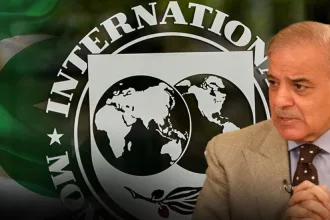Pakistan has extended its airspace ban on all Indian-registered and operated aircraft for another month. The Pakistan Airports Authority (PAA) announced the move on Friday through a new Notice to Airmen (NOTAM).
The ban takes effect from 1:00 PM Pakistan Standard Time on September 19, 2025, until approximately 4:59 AM on October 24, 2025. The restriction blocks Indian carriers from overflying Pakistani territory. It stems from ongoing bilateral strains. Pakistan first imposed the ban on April 24 as a response to India’s suspension of the Indus Waters Treaty. That came after the Pahalgam terror attack in Indian Illegally Occupied Jammu and Kashmir (IIOJK).
India hit back on April 30 by closing its airspace to Pakistani flights. Both sides have renewed the measures monthly since then. Tensions boiled over after the deadly Pahalgam attack in April 2025. It killed tourists and sparked a chain of events. India suspended the key Indus Water Treaty, a vital pact for water sharing.
Pakistan retaliated with the airspace closure. Things escalated on May 6-7 when India launched strikes on Pakistani cities. Pakistan called them unprovoked. In response, Pakistan’s forces hit back with Operation Bunyan-um-Marsoos. This large-scale action targeted Indian military sites across regions. Officials described the strikes as precise and measured. They aimed to counter India’s actions along the Line of Control (LoC) and inside Pakistan.
Read: Pakistan Extends Airspace Ban on Indian Flights Until August 24, 2025
Pakistan downed six Indian fighter jets, including three Rafales, plus dozens of drones. The brief conflict between the two nuclear powers lasted about 87 hours. It ended on May 10 with a U.S.-brokered ceasefire.
Impact on Aviation: India Feels the Pinch
The closures have hurt airlines on both sides. But experts say India bears the heavier load. Indian carriers like Air India face longer routes to Europe and beyond. This adds fuel costs and delays. Air India estimated up to $600 million in extra expenses over a year. Pakistan’s aviation sector sees minimal disruption. Its routes don’t rely as much on Indian skies.
In 1999’s Kargil conflict and 2019’s Pulwama crisis, India faced bigger rerouting woes. Over 400 daily flights were affected in 2019, resulting in costs of hundreds of crores.
With this latest extension, the reciprocal bans enter their sixth month. They highlight fragile ties despite the ceasefire. The ban underscores deep-rooted issues. Water rights, border clashes, and terror claims keep strains high. A full reopening would signal a thaw in relations.






